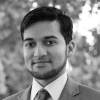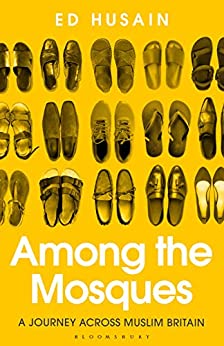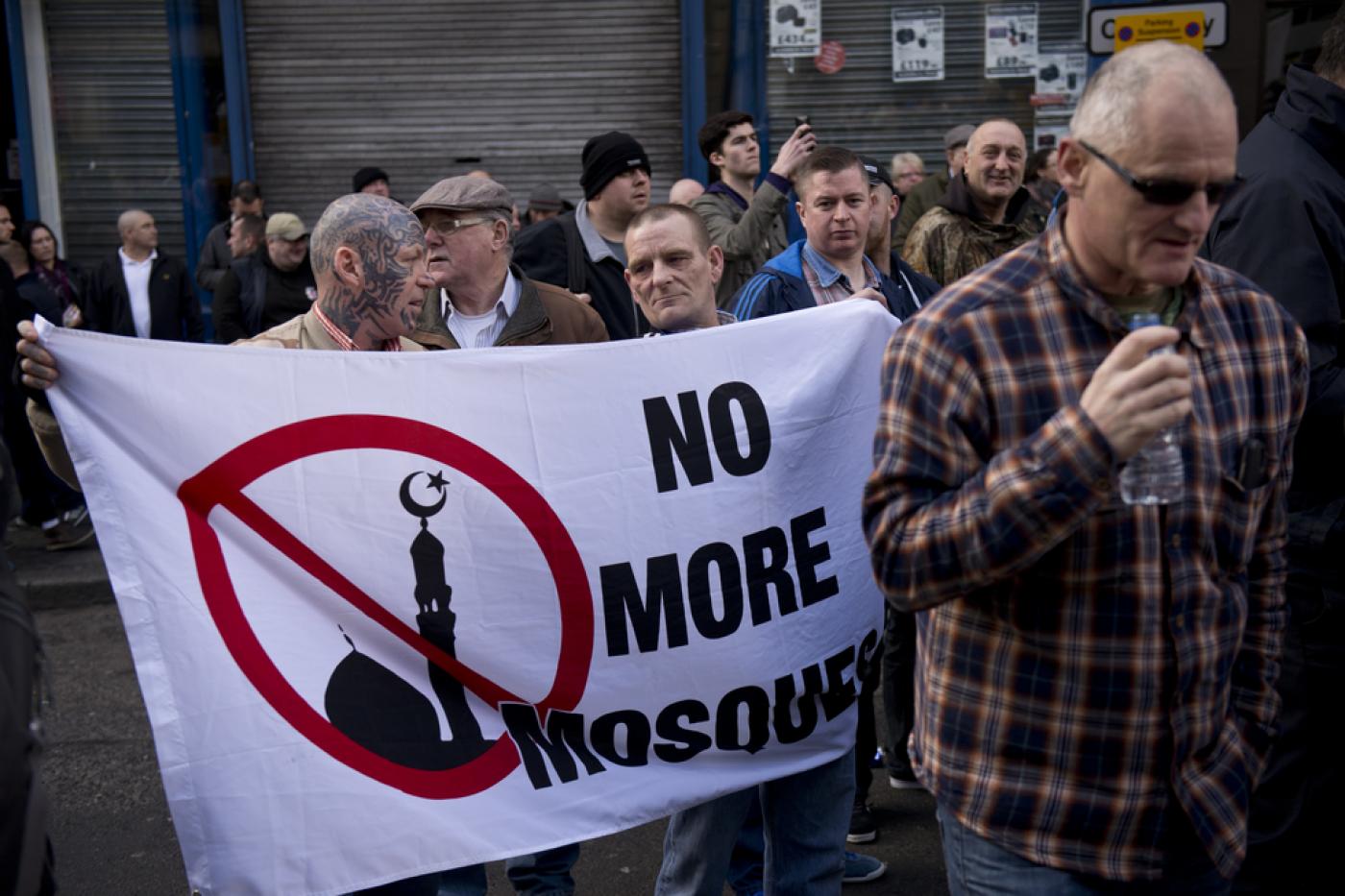Ed Husain's Among the Mosques: Fanning the flames of Islamophobia

In a recent interview about his latest book, Among the Mosques, Ed Husain was asked how his rhetoric was any different from that of anti-Islam activist Tommy Robinson. Husain took umbrage at the question, arguing that the comparison was unfair.
But was it? Having finished reading his book, my own assessment is that Husain simply represents a polished version of Robinson’s rhetoric. This is why its rave review in The Economist was so disconcerting.
A comparison with a figure like Robinson may seem far-fetched, but consider Husain’s remarks on British Muslims, who he seems to assume are all immigrants - despite the fact that roughly half of the country’s Muslims were born here. In a 2015 interview (and another in 2017), Robinson called for a halt to Muslim immigration to the UK. While Husain doesn’t state things so explicitly, from the very outset of his book and throughout its pages, he expresses his anxiety about the increasing numbers of Muslims in the UK.
Any conception of Islam that doesn't conform to his radical conception of secularism is seen as akin to the caliphate of the so-called Islamic State
Arguably, however, he goes much further than Robinson when he calls for the deportation of Muslims if they don’t assimilate. When asked about this in his interview with Politics JOE’s Oli Dugmore, Husain doubled down. “We’ve got to have a series of options, which includes: If you don’t like it [here], and if you think that parts of Pakistan are a better option, kindly go back to Pakistan, the land of your grandfathers, maybe five, six, seven, eight generations ago. That’s where we’re heading.”
So, notwithstanding his objection to the Daily Mail’s enthusiastic anti-immigrant portrayal of his book, such statements convey a sense of how extreme it can be. But the remarks about deportation are but one component; the rest is similarly arresting in just how Islamophobic it appears.
Stay informed with MEE's newsletters
Sign up to get the latest alerts, insights and analysis, starting with Turkey Unpacked
One of the differences between Husain and Robinson that Husain highlights is that he is Muslim, while Robinson is not. But Among the Mosques' disdain for almost everything associated with Islam was palpable to me throughout the work.
Outlandish stories
A striking feature of Husain’s text is the number of people he cites who do not actually appear to exist. I have repeatedly looked up individuals he quoted, generally expressing various degrees of Islamophobic derision towards Muslims - but again and again, my research has turned up no real candidates.
Some stories seem truly outlandish. Take the example of the claim reproduced in the Daily Mail that residents of Blackburn with Darwen were prohibited by the council from flying British flags, under threat of "eviction". In response to my queries, the council sent me a statement on behalf of its leader, Councillor Mohammed Khan, who described the claims as “laughable”, adding: “We proudly celebrate St George’s Day every year on April 23rd so why would we evict people for displaying the England flag?”
Another example, also picked up by the Mail, named an alleged senior official at Manchester Council, “Mahfuz Alimain”, who in the book describes Muslim immigrants as unable to settle down in the city because all they know is war and violence: "Killings are normal for them … Peace in Manchester troubles them; they feel they need to seek revenge and justice for the wrongs done to them in their countries.” Once again, the council issued a statement declaring that no such councillor, or indeed employee, of the council has ever existed.
In apparent response to the council’s tweet, on 10 June the Daily Mail added an asterisk next to Alimain’s name indicating a footnote in which they say: "Names have been changed."
Later on the same day, Husain tweeted in response to the recriminations regarding "Alimain" that, it was an “alias” used to protect “good and brave people”. But these corrections seem to come too little too late.
The Mail does not point out anywhere that they had an error in the earlier version of their piece, or that as late as 9 June (as noted in the Internet Archive), they were presenting Alimain as a real figure. It appears the correction was only made on 10 June, indicating that the false information remained on their page for nearly a week. Worse still, I have found nowhere in Husain’s published book that indicates that Alimain was an alias.
In fact, it suggests the opposite when it refers to a certain Major Abdullah Batal on page 229, who is given an endnote on page 313 where it says: "Name changed to protect his identity." Presumably, this would indicate that other names used throughout the text are in fact accurate, especially since nowhere have I found Husain say that he’s using aliases throughout his work.
I have written to Husain requesting his comments regarding this, but did not receive a response. Naturally, the book will also have a far longer shelf life than an online Daily Mail article, and it continues to present Alimain as a real person.
All of this makes one wonder what to believe about the interviews Husain claims to have conducted.
Husain’s Islamophobia is perhaps best encapsulated in his use of the term “caliphism”, which to him, represents an ideology according to which Islam is not a religion confined strictly to the private sphere. Any conception of Islam that doesn’t conform to his radical conception of secularism is seen as akin to the caliphate of the so-called Islamic State.
Specifically, he offers the following statement of a Leicester-based Islamic scholar as exemplifying caliphism: “It is a common fallacy that Islam is restricted to particular forms of devotional worship and has nothing to say about social issues, marriage, divorce, politics, economics and so on.” It seems to escape him that in liberal Britain, the leader of the established church routinely comments on political, social and economic issues. Yet, to a self-styled liberal such as Husain, this cannot be tolerated from Muslims.
Secular extremism
Husain’s Eurocentrism doesn’t even consider the possibility that non-secular people can flourish in modern Britain. He is not interested in the sort of intercommunal conversation that is essential for social cohesion, and which would allow for the various communities that make up modern Britain to engage in dialogue as equals.
Rather, as a champion of the dominant secular liberal mainstream of British society, his engagement with the Muslim “other” is very much that of an outsider who brings little desire for understanding. He simply wants the Muslim “other” to conform to his views, or else to consider deportation. In this regard, he appears never to have really renounced the extremism of his youth, but rather shifted from an Islamic extremism to a secular extremism.
Many of the comments he makes throughout the book reflect a deeply internalised Eurocentrism, and even an ironic white identitarianism for a person of South Asian heritage. Were such comments to come from a non-Muslim, they could fairly be called racist and Islamophobic. But as we have seen, Husain is quick to point out that he is Muslim. This is where things get especially interesting on the theological plane.
Of course, from a liberal perspective, it’s perfectly reasonable for a person to self-identify as a member of any religion they please. Yet, in his last book, The House of Islam, Husain heaped praise upon two Islamic clerics associated with the UAE, with whom he enjoys close relations. These two scholars, the Mauritanian Abdallah bin Bayyah and his American student-turned-colleague, Hamza Yusuf, serve as two of the UAE’s most prominent public religious representatives. The illiberal autocracy of the UAE is also repeatedly praised in Husain’s work.
And yet, the present work would cast both scholars as “caliphists” - and they, in turn, would likely declare Husain’s statements to be heresy. To take a few concrete examples, Husain disparages caliphists as those who consider the teachings of the Quran and the Prophet Muhammad to be binding upon Muslims, including in matters such as the scriptural prohibitions of Muslims engaging in sex outside of marriage, drinking alcohol, listening to music, women leading prayer, men shaving their beards, and not praying five times a day. Such prohibitions are upheld as normative by both scholars.
Exacerbating tensions
Alongside this, these same scholars speak positively about Muslim women wearing the face veil (niqab), the implementation of sharia by the state, and the centrality of reports from the Prophet Muhammad (known as hadiths) for understanding Islam - all things that Husain condemns in his book.
Indeed, Yusuf, who has been described by The Guardian as “arguably the West’s most influential Islamic scholar”, declares the rejection of hadiths as a whole as taking a person outside the fold of Islam. So according to the testimony of the scholars he himself so highly esteems, Husain’s attitudes towards Islam are questionable at best.
While such an Islamophobic diatribe may be popular with a large section of the electorate, it will only exacerbate tensions between Britain's diverse communities
Why, then, should any Muslim take his theological views seriously, especially when throughout this screed he treats Muslims who do not conform to his radical secularism with such virulent contempt? There are important conversations to be had about the role of Muslims in British society and our need to overcome fear and misunderstanding - but this book will only stoke the flames of intolerance, division and Islamophobia.
Husain has a long record of playing to popular prejudices about Muslims, in a country where the prime minister is a well-known race-baiter presiding over a ruling party with a persistent Islamophobia problem. But while such an Islamophobic diatribe may be popular with a large section of the electorate, it will only exacerbate tensions between Britain’s diverse communities, even as Husain claims to want to do the opposite. And Britain will be all the poorer for it.
The views expressed in this article belong to the author and do not necessarily reflect the editorial policy of Middle East Eye.
Middle East Eye delivers independent and unrivalled coverage and analysis of the Middle East, North Africa and beyond. To learn more about republishing this content and the associated fees, please fill out this form. More about MEE can be found here.








